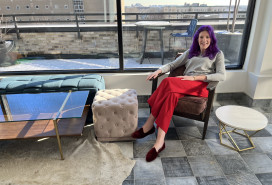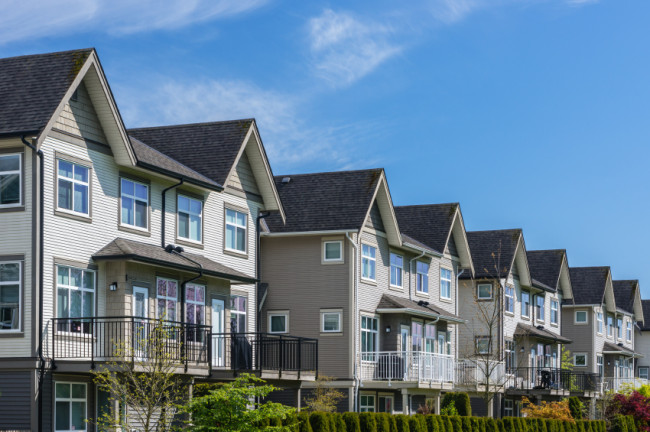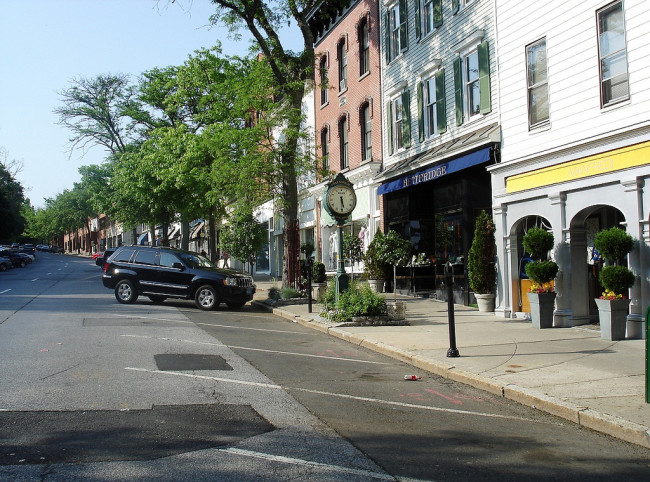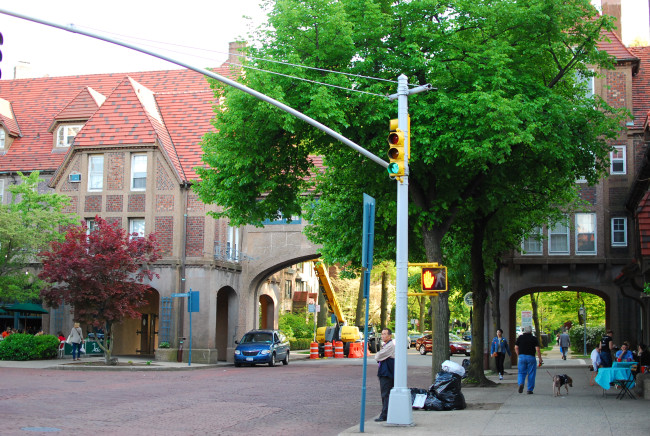5 things I didn’t expect when I suddenly moved from NYC to the suburbs
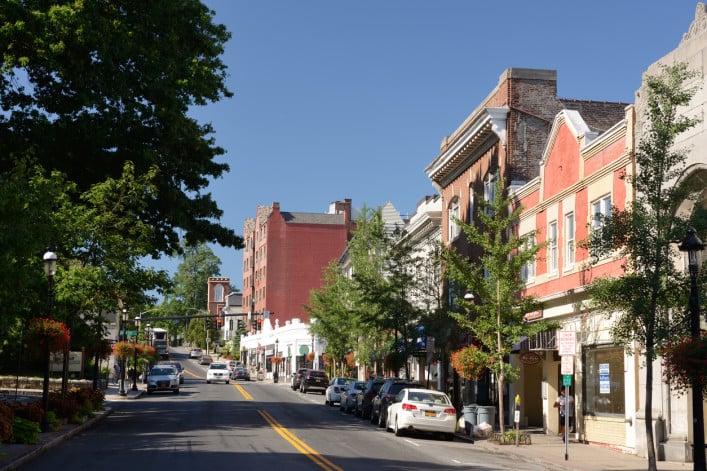
I relocated out of the city two years ago, and though I am one of a record number of people to do so recently, it wasn’t something I planned. At 10 p.m. on a Wednesday night in the spring of 2015, after living in Queens for most of my life, I packed my suitcase and my dog into my hatchback and left my Corona studio for northern Westchester.
The abruptness of my relocation was due to a tragedy: The mother of my boyfriend (who is now my husband) was suddenly dying from complications after recent surgery, and I wanted to be there for him. When she passed a few days later and he became the new owner of her three-bedroom, two-bath Cape Cod on a 1.23-acre plot in the woods, he asked me to move in. Coincidentally, the lease on my apartment was up that month and I hadn’t yet signed a new one, so I said, why not?
Most city-dwellers would have several answers to that question (“Because it’s crazy,” was one my friends came up with) but my relationship was serious, and I had already spent some time outside the city. A lifelong horseback rider, I’ve been known to pack up and ship out to the country for equine opportunities between journalism jobs. Despite growing up in New York City, I love the outdoors, porch hangs, and quiet nights. I have a green thumb, am an avid hiker, and can name many of the northeast’s native birds from their calls. Plus, I was tired of spending half my income to live in a tiny apartment, and my 50-pound pooch was desperate for space to run.
But while I did have an idea of what I was getting into—for example, that my commute to work in Manhattan would be longer and that I would have to kiss midnight takeout good-bye—there were some parts of life in the burbs that caught me by surprise. Here are a few:
Suburban life is not less expensive
I thought life would be cheaper without NYC housing and food prices, but I was mistaken. Owning a house comes with plenty of expenses, many of which are difficult to plan for ahead of time. Instead of paying a monthly water bill, for example, our water comes from a well in the yard. When part of the well breaks (as one did upon me moving into the house), it can cost thousands of dollars to fix. Since we haven’t had thousands to spend on it, we have a pipe running above ground outside as a temporary solution—all well and good until the winter when our running water freezes with the weather. And while in the city if there was a leak in my apartment all I had to do was call the super, when our 70-year-old copper pipes splinter because the water pressure from the broken well is too high for them to handle, it’s at least $100 just to get a plumber on the property. Meanwhile, on top of the $200,000 mortgage that was left on the house, our property and school taxes are another $1,000 a month.
And unlike in an apartment where seasonal upkeep involved installing or removing an air conditioner, our property gets about a foot of leaves every fall, which usually requires two rounds of $350 clean-ups from a local landscaping company. Similarly, it would cost $90-per-four-inches of snow if we want to have our 200-foot driveway plowed. Needless to say, we’ve gotten really good at shoveling snow.
There are bugs here, too
After living in apartments crawling with every gross bug that exists in the city, I was excited to own a home in an area where I thought an infestation would entail a mouse here and there. However, I soon realized that the suburbs have their own creepy-crawlies: from stink bugs, which are clumsy house beatles that smell if you squish them, to a wide range of spiders and giant roaches that run in from the woods. Imagine my surprise the first time one such roach came scuttling toward me in the bathroom. I accused my husband of bringing it home from the restaurant he worked in, only to have him reply, “No honey, those get in the house every summer.” I also learned that I hadn’t truly experienced fear and trauma until I had to pull a tick out of my skin. And if that isn’t enough, it isn’t uncommon for me to find coyotes, snakes, deer ,and turkey vultures (!) eating their meals on my front lawn—in which case it really does pay to own a (large) dog.
I’m still in a tourist area
Turns out, I couldn’t escape the tourists, either. While we don’t have Times Square, booming nightlife, and world-class art galleries, I still live where people vacation. From hundreds of miles of hiking trails to huge parks with beautiful riverfront beaches, gorgeous foliage, and spooky Halloween attractions in the fall, visitors come up from the city in droves and from all around the country in camper caravans to enjoy our beautiful area. Where we live there are no sidewalks for them to block, but they do tend to drive at 5 mph—probably out of fear of our winding, hilly roadways. And though the local businesses are happy to have the surge of patrons, out-of-towners don’t always exhibit the friendliness and courtesies that locals are accustomed to.
“Community” means more than knowing the bartender downstairs
Outer-borough neighborhoods love to boast their “small-town feel”—and it does exist in some areas of NYC and even in some apartment buildings—but it’s more than just a feeling in the suburbs. My town has a garden club which plants flowers in front of the library and in other public places every spring. Neighbors introduce themselves with casseroles when newcomers arrive in the area. And thanks to social media, I can poll the local community page on Facebook when I need a (hopefully less expensive) new plumber, have a question about garbage day, or want to make new friends. In the suburbs, if you walk into a business, you can be confident that the people in it, from employees to customers, will be warm and friendly. Comparatively, in Queens, if I knocked on a new neighbor’s door to ask for sugar, it was unlikely that anyone would answer due to years of don’t-open-for-strangers training. And though the city is packed with eight million people, most of whom are tough but friendly, New Yorkers pride themselves in their ability to mind their own business.
Making appointments is easy
Gone are the days when I’d wait weeks to see a doctor, and I no longer have to suffer through public transportation with a raging fever to get there. Suburban doctor’s offices aren’t struggling to keep up with eight million patients, so I’m rarely placed on hold and an appointment is usually available in a couple of days. Similarly, if I want a haircut, have to file my taxes, or need reservations at a restaurant, it isn’t crazy to call just a day or two in advance. When I got a traffic ticket (shhh, don’t tell my husband), it took just a few minutes to fight it at the local town courthouse. Businesses, government agencies, and medical offices also have their own parking lots, so coming and going in my new, suburban-style SUV is stress-free.
You Might Also Like




